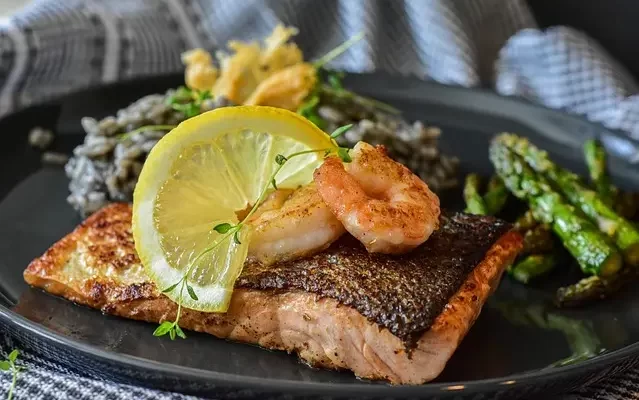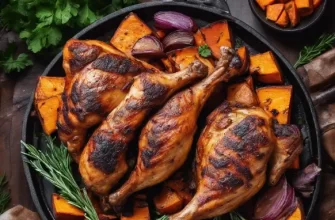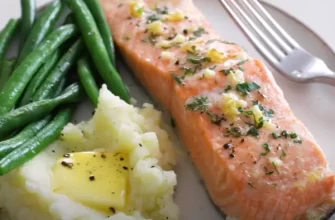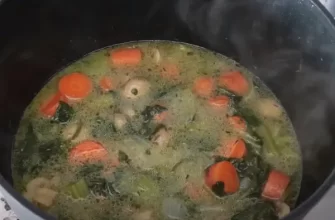When it comes to menstruation, it’s simply not just about experiencing a physical cycle; our entire body gets involved, including our nutritional needs. Paying attention to our diet during periods can make a significant difference in managing symptoms.
Importance of a balanced diet during menstruation
During menstruation, it is important for a woman to consume additional nutrients. Eating a well-balanced diet that is packed with various nutrients not only provides the necessary energy for the body but also aids in tackling fatigue, mood swings, and discomfort. It can be helpful to prioritize foods that are rich in iron to make up for the blood loss, as well as calcium to alleviate menstrual cramps. Furthermore, staying hydrated is crucial as it assists in reducing bloating and other symptoms associated with the menstrual cycle.
Foods to avoid during periods
Certain foods might instigate menstrual symptoms. Too much salt can lead to bloating and fluid retention. Foods high in fat can increase hormone imbalances, and caffeine can heighten anxiety and difficulty sleeping. Therefore, limiting these in your diet during periods can potentially reduce discomfort and make the period cycle more manageable. Ensuring we are mindful of our diet during our menstrual cycle can help navigate this natural process with greater ease and comfort.
Nutrient-Rich Foods for a Healthy Period
Just as we need to steer clear from certain food items during menstruation, incorporating specific nutrient-dense foods can make a world of difference in managing menstrual symptoms. Let’s dive into two essential nutrients – Iron and Calcium, and understand their impact.
Foods rich in iron and how they benefit during periods
During the menstrual cycle, there is a significant amount of iron that is lost, and if this loss is not balanced, it could result in feelings of tiredness. It is important to consume foods that are rich in iron during this time, such as leafy greens like spinach and kale, whole grains, legumes, and lean meats.
Calcium-rich foods for menstrual health
Calcium is another nutrient to focus on during periods. It is known to help alleviate menstrual cramps and maintain overall health. Dairy products like milk, cheese, and yogurts are rich in calcium. Fish like sardines and salmon, soy products, almonds, and green vegetables are other superb sources. Incorporating these foods into meals during menstruation can tremendously aid in managing discomfort and promoting better menstrual health.
Foods to Alleviate Period Symptoms
Bringing certain changes into your diet can significantly ease period-associated discomfort. Here are some recommended food groups that can help mitigate menstruation symptoms and provide you with the necessary energy.
Anti-inflammatory Foods for Reducing Cramps and Bloating
Incorporating anti-inflammatory foods in your diet may relieve cramps and bloating. Foods rich in omega-3 fatty acids, such as salmon, walnuts, and flaxseeds, have excellent anti-inflammatory properties. Leafy greens, ginger, and berries too can be beneficial due to their antioxidants and anti-inflammatory substances. These foods might help soothe the inflammatory response and discomfort often heightened during menstruation.
Foods to Boost Energy Levels During Periods
Keeping energy levels stable during your period is essential. High-iron foods such as lean meat, leafy greens, and beans can help counteract fatigue caused by blood loss. Adding complex carbohydrates like oats, brown rice, and whole grain bread can maintain energy levels and mood by providing a slow and steady release of energy throughout the day. Lastly, certain fruits like bananas and avocados provide essential vitamins and minerals that can also boost your energy levels during your periods. Remember, everyone is different. Always find a diet that works best for your unique needs.
Hydration and Periods
During menstruation, it’s essential to focus on a wholesome diet that includes ample hydration. The role of hydration in having a healthy menstrual cycle cannot be understated.
Importance of Staying Hydrated During Menstruation
Staying hydrated during menstruation is of utmost importance. When the body loses blood, it’s crucial to replenish the fluid loss. Adequate hydration helps with bloating and can alleviate cramping, too. It maintains a robust energy level and aids in digestion. It’s recommended to drink at least eight glasses of water daily, and if there’s a feeling of fatigue or lightheadedness, it might signal the need to hydrate more.
Refreshing Drinks and Infused Water Recipes for Periods
To spice up the hydration routine during periods, infused water with fruits and herbs can be a refreshing choice. Adding slices of lemon, cucumber, or strawberries to your water can make for an interesting drink while providing essential nutrients and antioxidants. Mint or ginger infused water can also help soothe upset stomachs and reduce inflammation. Herbal teas such as green tea, chamomile, or fennel are warm, comforting options that can help with bloating and cramps while keeping you hydrated. Staying intentional about hydration can contribute to a better menstruation experience.
Meal Ideas for Period Days
Throughout menstruation, a well-balanced diet can soothe discomforts, replenish lost nutrients, and sustain energy levels. Understanding this, it can tremendously help to carefully plan what you consume during period days.
Nourishing breakfast options during periods
Starting your day, with a nutritious breakfast, sets the tone. Consider whole grain foods like oatmeal or wholegrain bread as they are high in fiber and can alleviate bloating. Pair these with protein sources such as eggs or Greek yogurt, rich in essential nutrients that help regulate the mood. You can also include fruits like bananas, rich in potassium and vitamin B6, aiding in reducing water retention and improving your mood.
Balanced lunch and dinner recipes for menstrual health
For lunch and dinner, consider lean proteins such as chicken or fish, paired with whole grains and lots of vegetables. Iron-rich foods like spinach are beneficial due to the iron loss during menstruation. Omega-3 fatty acids found in fish or walnuts can also help combat inflammation and menstrual pain. Avoid overly salty or sugary foods, as they can worsen bloating and fluctuations in mood. Staying intentional about your meals can contribute to better menstrual health.
Snack Alternatives for Period Cravings
Many women experience cravings during menstruation, but reaching for high-sugar or salty options may not be the best choice. Luckily, there are healthier snack alternatives that you can turn to.
Healthy Snack Options to Satisfy Cravings During Periods
Opt for snacks rich in fiber, protein, and healthy fats to keep you satisfied and curb cravings. Nuts like almonds or walnuts are an excellent option, as well as seeds like pumpkin or sunflower seeds. Pair them with magnesium-rich dark chocolate to help reduce water retention. Fruits like raspberries or oranges can also satisfy a sweet tooth while providing necessary vitamins and fiber.
Homemade Treat Ideas for Indulgence Without Guilt
Consider preparing homemade treats that are both healthy and delicious. Snacks such as dates stuffed with nut butter, homemade popcorn seasoned with your favorite herbs, or oatmeal cookies sweetened with banana or honey can offer an indulgent yet guilt-free option during your period. These nutrient-dense treats can satisfy your cravings while providing beneficial nutrients to support your overall menstrual health.
Recommended Diet During Periods
During menstruation, many women experience cravings for unhealthy snacks. However, it is important to make wise choices and opt for healthier alternatives to satisfy these cravings. Here are some recommended diet tips to help you navigate through your period:
1. Why do cravings occur during menstruation?
Cravings during menstruation are often influenced by hormonal changes in the body, particularly a drop in serotonin levels. This can lead to increased cravings for sugary or salty foods as a way to boost mood and energy temporarily.
2. How can I satisfy cravings without compromising my health?
Instead of reaching for high-sugar or salty options, consider healthier alternatives. Opt for snacks that are rich in fiber, protein, and healthy fats. Nuts like almonds or walnuts are an excellent choice, as well as seeds like pumpkin or sunflower seeds. You can also pair them with magnesium-rich dark chocolate to help reduce water retention.
3. What fruits are good for satisfying sweet cravings?
Fruits like raspberries or oranges can satisfy your sweet tooth while providing necessary vitamins and fiber. They are a healthier option compared to processed sugary snacks and can provide a natural source of energy.
4. Can I indulge in homemade treats?
Yes, you can indulge in homemade treats that are both healthy and delicious. Consider preparing snacks such as dates stuffed with nut butter, homemade popcorn seasoned with your favorite herbs, or oatmeal cookies sweetened with banana or honey. These nutrient-dense treats can satisfy your cravings while providing beneficial nutrients to support your overall menstrual health.
5. Is there any specific diet I should follow during my period?
Although there is no particular diet requirement during menstruation, it is crucial to pay attention to your body’s cravings and opt for nutritious options. Prioritize maintaining a balanced diet by incorporating a wide range of fruits, vegetables, whole grains, lean proteins, and good fats.
6. Do certain foods help alleviate period symptoms?
Certain types of food can assist in relieving symptoms experienced during menstruation. To illustrate, incorporating iron-rich foods like leafy vegetables and lean meats into one’s diet can combat fatigue and replenish lost iron. Consuming foods with high magnesium content, like dark chocolate and nuts, might aid in reducing bloating and cramps.
It is important to keep in mind that being aware of your body’s needs and making mindful decisions can assist in controlling cravings and promoting overall health during your period. Pay attention to what your body is telling you, fuel it with nutritious food, and make sure to stay hydrated to maintain a healthy menstrual cycle.









